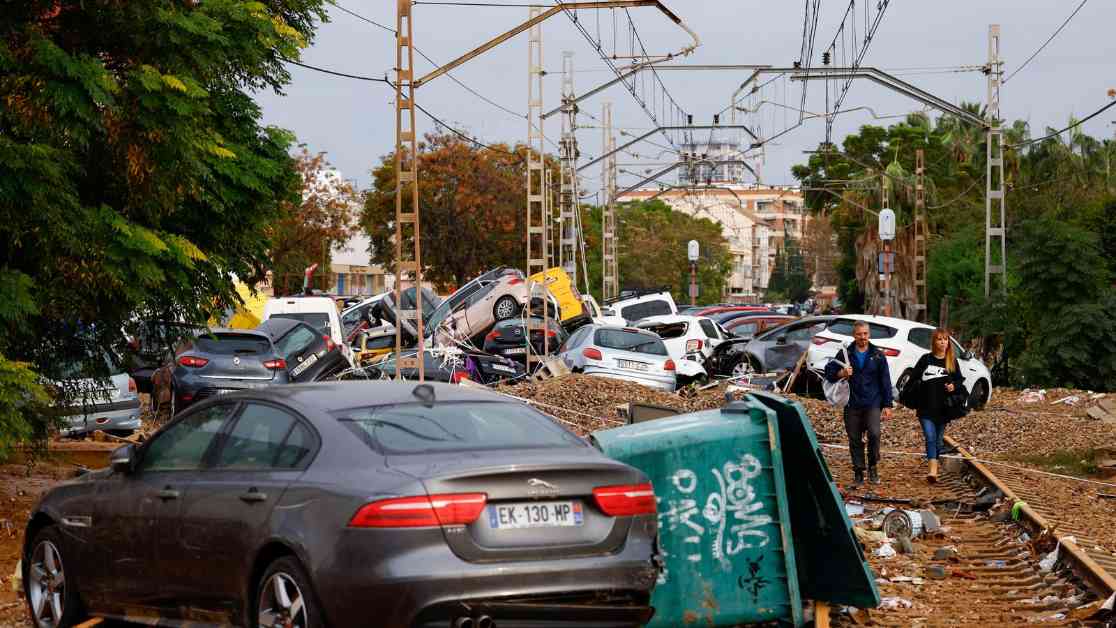In Spain, tragedy struck as heavy rain led to deadly flooding, claiming the lives of over 200 people. The floods hit the worst in Valencia, with additional casualties in Castilla La Mancha and Andalusia. The sudden onset of the floods caught many off guard, despite late warnings issued by local authorities.
The heavy rain was a result of a weather phenomenon known as DANA, or ‘isolated low-pressure system at high levels.’ This weather pattern caused a sustained period of intense rainfall over the affected areas, leading to the devastating floods. Climate change has exacerbated the impact of heavy rain by allowing the air to carry more moisture, resulting in more intense downpours.
Experts warn that as global temperatures continue to rise, events like the deadly flooding in Spain are likely to become more frequent. The unfortunate geography of the worst-hit areas, such as Chiva, also contributes to the rapid build-up of water, leaving residents vulnerable to flooding.
In the aftermath of the tragedy, calls for improved warning systems and better preparedness have been emphasized. Professor Hannah Cloke emphasizes the need for treating flood warnings as seriously as fire alarms, highlighting the importance of timely responses to extreme weather events. Gareth Redmond-King warns that Spain’s tragedy should serve as a wake-up call for other countries, including the UK, as climate change continues to impact weather patterns globally.
As the world grapples with the effects of climate change, it is crucial for communities to come together to address the challenges posed by extreme weather events and work towards building resilience in the face of future disasters. The devastating flooding in Spain serves as a stark reminder of the urgent need for climate action and increased preparedness to protect vulnerable communities from the impacts of a changing climate.




